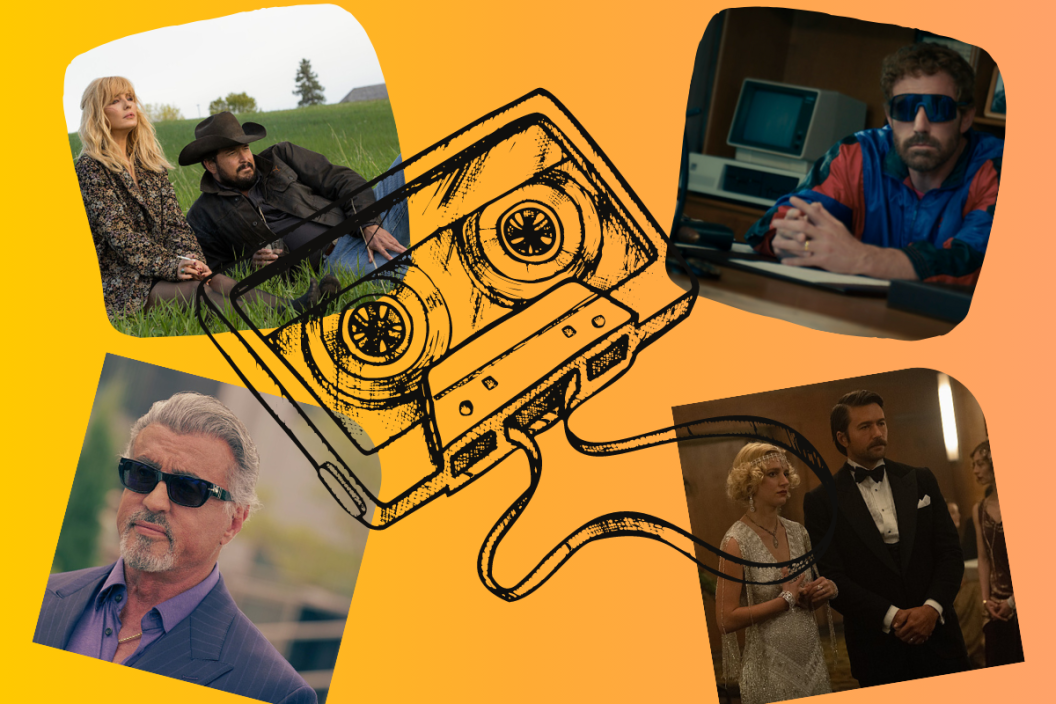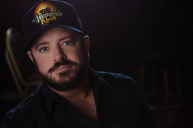If you've watched Yellowstone and found yourself drawn in by the Montana-set series' captivating country music soundtrack, you're certainly familiar with the work of music supervisor Andrea von Foerster. Over the series' five seasons, von Foerster has helped introduce audiences to the music of Lainey Wilson, Zach Bryan, Isaac Hoskins, Shane Smith & the Saints and more. But von Foerster's history with TV and movie soundtracks goes back way before we ever knew the true meaning of the Dutton "train station."
Long fascinated by the world of music and film ("I've always been driven by entertainment. Since I was 2 years old, my dad called me Little Miss Hollywood," she says), von Foerster has worked in the world of music supervision for over 20 years. That began with the Pamela Anderson action-comedy V.I.P. and included working in the music department for millennial cultural touchstone The O.C. and Grey's Anatomy (working alongside Alexandra Patsavas), also serving as music supervisor for the all-star indie soundtrack for 500 Days of Summer.
In the last few years alone, she's worked as music supervisor on Taylor Sheridan's Tulsa King and Mayor of Kingstown, the horror smash M3GAN and Tiny Beautiful Things. Her latest venture is Air, the Ben Affleck-directed movie that tells the tale of how the partnership between then-rookie Michael Jordan and Nike's fledgling basketball division changed the world of sports with the culture-shifting creation of the Air Jordan brand. With an epic playlist from Affleck and a lifetime's worth of knowledge of '80s pop culture, von Foerster created a soundtrack jam-packed with needle drops from Dire Straits, Run-D.M.C., Cyndi Lauper, REO Speedwagon and more.
Wide Open Country caught up with von Foerster to discuss finally landing a Bruce Springsteen song, the lesser-known aspects of music supervision, and how it felt to mine her childhood memories to create a time capsule of '80s hits.
Ben Affleck sent you an '80s playlist when you started on the project. How did that help you in understanding the vibe and the tone of the film?
The script was really strong, and it felt like an '80s film that I grew up with. So I kind of already got the vibe and the underdog story — the kind of like sports movie, everything that I loved growing up: Hoosiers and Rudy and all that. Then, because of the time that it takes place — in 1984 — it's pretty easy because you want to stick to '80s. A lot of '80s songs are very sort of anthemic or dramatic.
We have a story that doesn't take place in very many places, geographically, but there are stakes. So you want to kind of elevate the drama as you keep going through the movie ....
The script had 12 songs, but we used only five of those. The playlist was over a hundred songs — we used an additional six from that. So we had 23 songs total and then 18 licensed score cues from other films and then two commissioned score cues. So there were 43 cues total and then we used two of those twice, so there's 45 drops. Basically, I got to mine my childhood and go back to all the songs that I love and grew up with. We just had to be mindful of budget because some things were outside of what we could handle for our film, but we got most of what we wanted.
I read an interview also where you were talking about Cindi Lauper approving "Time after Time" because she's a huge fan of Viola Davis. How often do things like that happen — where you get approval from an artist simply because like they're a fan of an actor or director?
I know of it maybe 10 percent of the time if the publisher or the label shares it with me, or maybe a manager, but I'm sure it happens far more often than that. Just because, maybe you don't care about sports ... but then you're like, wait a minute, I love that actor and everything they do.
The subject matter of the film might not necessarily, like, light a fire, but then the cast will or the director does. It's fun to see what people respond to.
When you're working on a new project, what do you typically consider first? The setting, tone of the script? Or does it really just depend on the project?
It definitely depends on the project. I think one thing that people tend to forget is that I work in audio and visual. So just because I know certain music or I'm good at pairing things, I very rarely get to see picture when I'm pitching originally. But it's super helpful because just the way someone moves through a scene, like the pace of how they talk or walk or the way it's shot: Is it blue? Is it warm? All of that kind of informs where I go with the music.
Sometimes, if they can't give up footage just for security reasons or whatever, I'll just ask for a still because then it'll give me an idea of the overall vibe. ... It could be super saturated, it could be black and white. That just totally changes the mood.
I mean, there's a lot. I've never been able to afford Bruce Springsteen before. So the fact that we wanted "Born in the U.S.A." — one of his biggest songs for this film — there was a lot of kind of back and forth because it's a big song and they have the right to ask for whatever they're asking for. But they eventually — thank God — said yes. So that felt like I won. [Laughs] That was really fun, and it was a really long use in Air.
I think all supervisors kind of have their, like, mental list of artists that you would like to be able to use. Or, as you kind of get further in your career, the list gets smaller but then you're like, "I've still never used this person." Like, I've never licensed a Beatles song. Beyonce either. I would love to license Beyonce.
There have been a lot of songs along the way where I was like, "Yes, I got to use that." ... [For] 500 Days of Summer, we did not have a big budget at all, so getting all of those songs was a lot of work, but especially — Carla Bruni was the first lady of France at the time. So trying to get an approval from somebody who's married to the French president was not the easiest thing to do. Then also clearing the two songs by the Smiths, those were also very difficult. That whole film, just because of the budget, was tough. But I am so happy we ended up with everything we ended up with.
What's the most misunderstood part of your job?
It's a lot of paperwork. The thing is that it doesn't matter if you have good taste and you love music. Everyone always says that — "I want to be a supervisor because I love music." I'm always like, "Nobody cares about your taste. You are a filter for the project. The project is the star." That will always take precedence. The film or the TV show calls for this, and you are the filter for the people who made it. You're all on the same team. Your specific taste doesn't typically matter.
"Air" is available to stream now on Prime Video.




